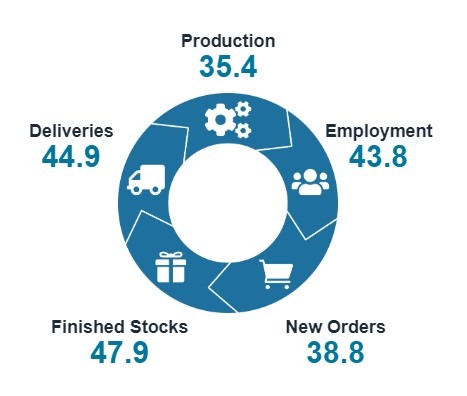New Zealand Manufacturing Sector Faces Continued Contraction
Business NZ Manufacturing PMI for June 2024 Collapses to 41.1
In the latest report from Business NZ, the manufacturing purchasing managers’ index (PMI) for June 2024 has plummeted to 41.1, marking the sector’s 15th consecutive month of contraction. This significant drop comes as a shock following the previous month’s PMI of 47.2, signaling a troubling trend for New Zealand’s manufacturing industry.
The Report Titled “Freefall”
The report from Business NZ has aptly dubbed this downward spiral as “Freefall,” a fitting description of the current state of the manufacturing sector in New Zealand. This latest figure represents the third lowest value for a non-COVID lockdown month, painting a bleak picture for the industry’s future prospects.
BusinessNZ’s Director of Advocacy, Catherine Beard, expressed deep concern over the sharp decline in activity from May to June. The continued contraction over the past 15 months has created a challenging environment for manufacturers, with no immediate signs of improvement on the horizon.
BNZ’s Head of Research, Stephen Toplis, echoed these sentiments, highlighting the gravity of the situation facing the manufacturing sector in New Zealand. The prolonged period of contraction raises questions about the underlying issues driving this decline and the potential impact on the wider economy.
Impact on New Zealand
The collapse of the manufacturing PMI to 41.1 in June 2024 will have far-reaching implications for businesses and the economy in New Zealand. With the sector struggling to sustain growth and facing persistent challenges, manufacturers may be forced to make tough decisions regarding production, employment, and investment. This downturn could lead to job losses, reduced output, and a slowdown in economic growth, impacting businesses and consumers across the country.
Global Implications
While the decline in New Zealand’s manufacturing PMI may be a local phenomenon, its repercussions can extend to the global stage. As a key player in the global supply chain, any disruptions in New Zealand’s manufacturing sector could ripple through international markets, affecting trade, investment, and economic stability worldwide. The continued contraction of the PMI signals underlying weaknesses in the global economy and highlights the interconnected nature of manufacturing industries across borders.
Conclusion
The sharp decline in New Zealand’s manufacturing PMI for June 2024 underscores the challenges facing the sector and the broader economy. With the 15th consecutive month of contraction, businesses in New Zealand must navigate a tough operating environment and consider strategies to weather the storm. The implications of this downturn extend beyond national borders, highlighting the interconnectedness of the global economy and the need for coordinated responses to bolster manufacturing industries worldwide.





